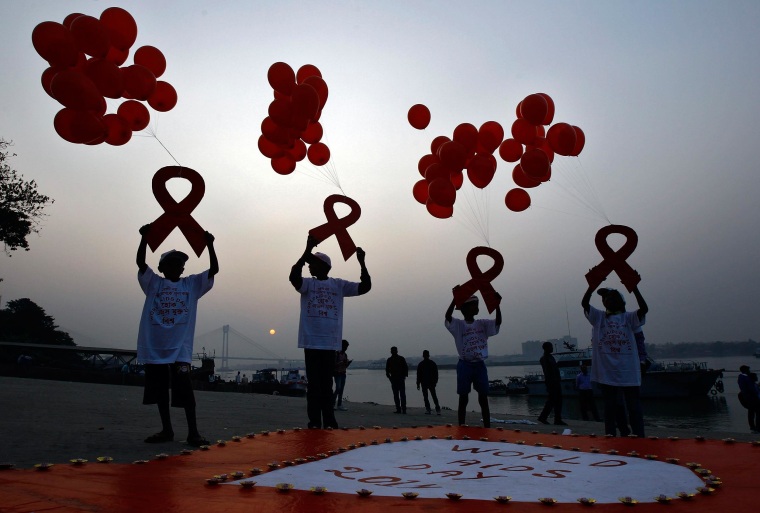The Food and Drug Administration says it’s approved a new once-a-day pill that delivers four HIV drugs in a single dose to keep the virus under control.
It’s an updated version of the only other pill that combines four drugs in a single pill and is designed to reduce some of the toxic side-effects, the FDA said.
“Genvoya contains a new form of tenofovir that has not been previously approved. This new form of tenofovir provides lower levels of drug in the bloodstream, but higher levels within the cells where HIV-1 replicates,” FDA said in a statement.
“Genvoya appears to be associated with less kidney toxicity and decreases in bone density than previously approved tenofovir-containing regimens based on laboratory measures.”
The pill combines four HIV drugs: elvitegravir, cobicistat, emtricitabine, and tenofovir alafenamide.
There is no cure for the human immunodeficiency virus (HIV) that causes AIDS, but there are now 36 different HIV drugs on the market. They fall into six different classes, each one attacking the virus from a different direction. The most effective cocktails of these drugs can keep the virus at extremely low levels so that it doesn’t damage the immune system and so that patients are far less likely to infect others.
Genvoya is an updated version of Stribild, which has the same four drugs but the older formulation of tenofovir. They’re made by Gilead Sciences, which specializes in antivirals.
Experts now recommend that people start taking drug cocktails as soon as they’re diagnosed with HIV.
When the cocktail approach was first devised in the 1990s, patients were forced to take several pills a day, often at different times and some with food and others without food. Patients complained it was hard to keep track and they ran the risk that the virus would develop resistance if the drugs weren’t taken in precisely the right manner.
UNAIDS says 36.9 million people are infected with HIV worldwide. There's still no vaccine to prevent it and there is still no cure. Two million people are infected every year and more than a million die of AIDS.
Most people in the world still do not have access to lifesaving drugs, but UNAIDS estimates that 40 percent can get some kind of drug, usually older, generic versions made for the developing world.
Stribild cost about $2,700 a month in the U.S. Insurance sometimes pays for HIV drugs in the U.S., and there are assistance programs to help patients pay.

